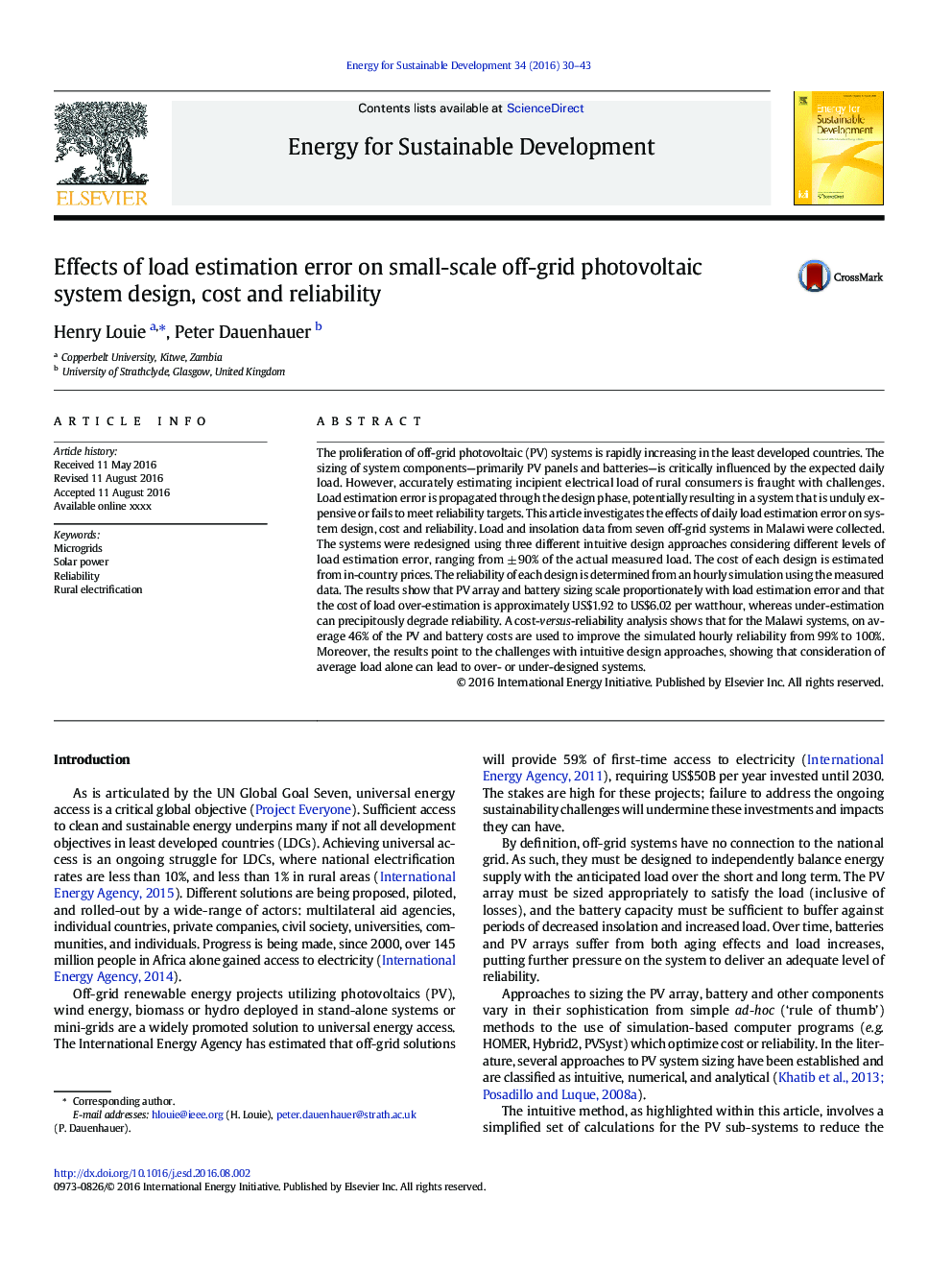| Article ID | Journal | Published Year | Pages | File Type |
|---|---|---|---|---|
| 7453723 | Energy for Sustainable Development | 2016 | 14 Pages |
Abstract
The proliferation of off-grid photovoltaic (PV) systems is rapidly increasing in the least developed countries. The sizing of system components-primarily PV panels and batteries-is critically influenced by the expected daily load. However, accurately estimating incipient electrical load of rural consumers is fraught with challenges. Load estimation error is propagated through the design phase, potentially resulting in a system that is unduly expensive or fails to meet reliability targets. This article investigates the effects of daily load estimation error on system design, cost and reliability. Load and insolation data from seven off-grid systems in Malawi were collected. The systems were redesigned using three different intuitive design approaches considering different levels of load estimation error, ranging from ± 90% of the actual measured load. The cost of each design is estimated from in-country prices. The reliability of each design is determined from an hourly simulation using the measured data. The results show that PV array and battery sizing scale proportionately with load estimation error and that the cost of load over-estimation is approximately US$1.92 to US$6.02 per watthour, whereas under-estimation can precipitously degrade reliability. A cost-versus-reliability analysis shows that for the Malawi systems, on average 46% of the PV and battery costs are used to improve the simulated hourly reliability from 99% to 100%. Moreover, the results point to the challenges with intuitive design approaches, showing that consideration of average load alone can lead to over- or under-designed systems.
Related Topics
Physical Sciences and Engineering
Energy
Energy (General)
Authors
Henry Louie, Peter Dauenhauer,
